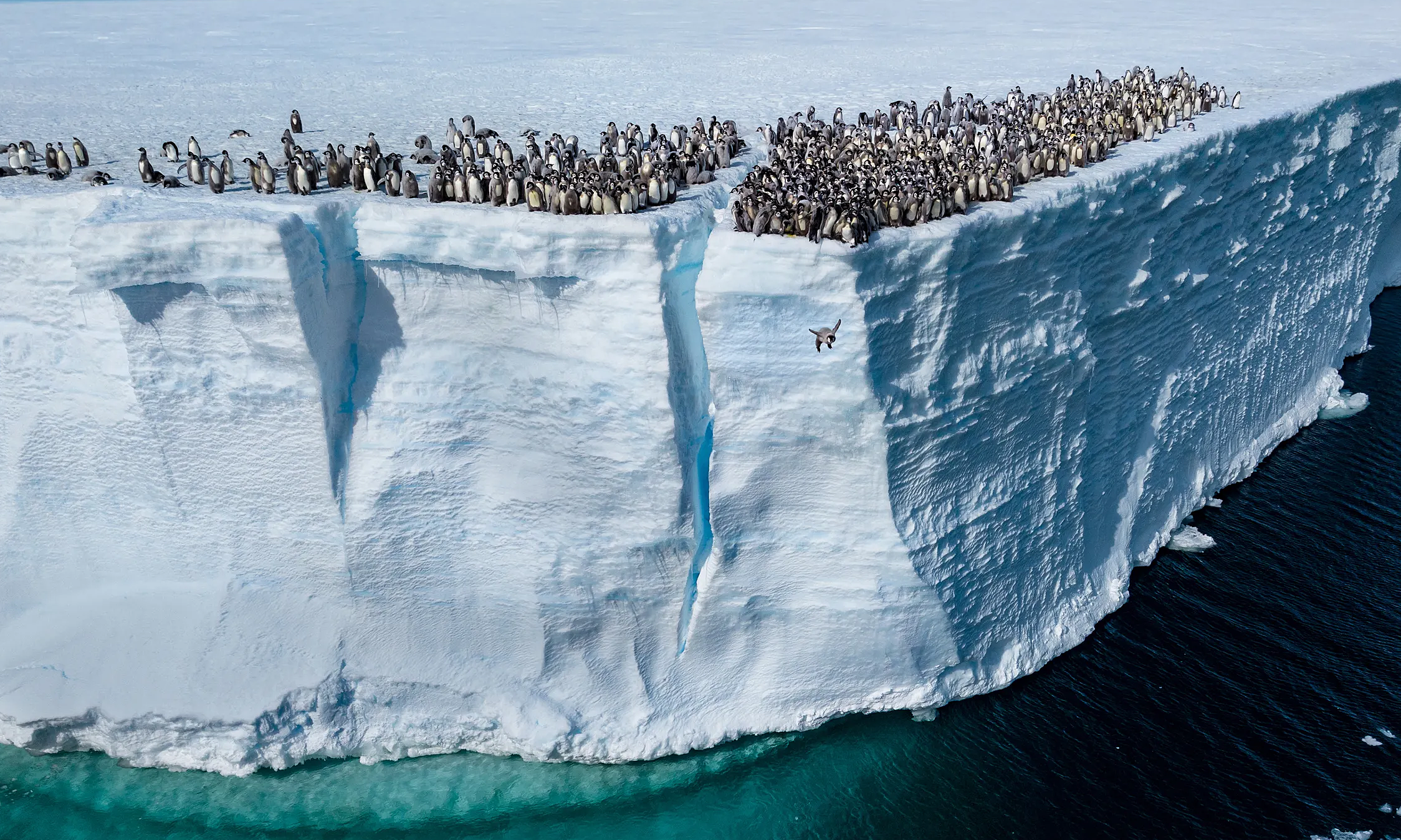As reported by Phys on 24/8, citing a study published in Nature, researchers warn of severe climate change consequences stemming from melting ice and the slowing of a crucial ocean current in Antarctica.
"Antarctic sea ice could be a 'tipping point' in the Earth's system," said Nerilie J. Abram, former professor at the Australian National University and lead author of the study.
A "tipping point" is a climate threshold that can trigger a shift in the Earth's operating system. Crossing this point leads to phenomena that are: abrupt (rapid change relative to the driving forces), self-sustaining (continues to change even if the trigger is removed, until a new state is reached), and irreversible.
 |
Baby emperor penguins jump off a 50-foot cliff for their first swim in Atka Bay, Antarctica, 1/2024. Photo: *National Geographic* |
Scientists warn that Antarctic sea ice is shrinking abruptly, severely impacting the ecosystem. For instance, the emperor penguin, a symbol of Antarctica, is edging closer to extinction.
However, according to the research team, changes in this region have broader implications, impacting the world for generations, from rising sea levels to extreme climate shifts.
Conducted by professors from universities in Australia and the UK, the study is based on data collected from ice cores and ship logs, contextualized by the rapid ice decline in recent years.
Scientists say the "abrupt" phenomenon becomes particularly concerning when it becomes self-amplifying. For example, melting sea ice causes oceans to warm faster, leading to more ice melt. Once this process is triggered, it's difficult, if not impossible, to reverse.
This abrupt phenomenon has been occurring for about a decade in Antarctica, a region that has been much less responsive to global warming than the Arctic in previous decades. Since 2014, Antarctic sea ice has been shrinking at twice the rate of Arctic sea ice. "This transformation is unprecedented, far exceeding the natural fluctuations of past centuries," the study states.
Sea ice has a highly reflective surface, bouncing heat back into space. As sea ice diminishes, more heat is absorbed by the oceans. Emperor penguins and other species that depend on sea ice for survival and breeding face serious threats.
Furthermore, rapid ice melt is slowing deep ocean currents around Antarctica, which play a role in regulating Earth's climate by absorbing carbon dioxide (CO2) and distributing heat. The research team notes that the slowing rate of the Antarctic overturning circulation could be twice that of the North Atlantic overturning circulation, which coincided with extreme climate events in the past, such as ice ages.
Another tipping point is forming with the melting of the West Antarctic ice sheet. Ice loss has increased sixfold since the 1990s. Scientists warn that we may be approaching a point where this ice sheet could collapse, even if global warming is controlled.
These massive ice sheets are a contributing factor to global tipping points. They make it difficult for scientists to predict future sea level rise due to the uncertainty and unpredictable speed of collapse.
If it were to completely melt, the West Antarctic ice sheet holds enough ice to raise global sea levels by more than 5 m, threatening coastal infrastructure and communities worldwide. Globally, at least 750 million people live in low-lying coastal areas.
"Even if we stabilize the climate, we will still lose Antarctic sea ice for centuries to come," Abram said, adding that the world would then initiate a self-sustaining process, exceeding the tipping point. In other words, nature will continue to change even if the trigger is removed, until a new state is reached.
Bao Bao (*Phys, Nature*)












